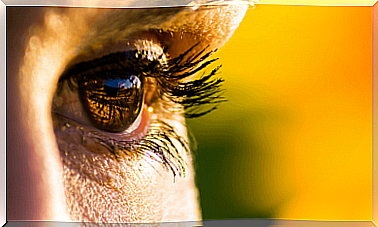The Science Of Personal Wellness

In 2000, Martin Seligman of the University of Pennsylvania and Mihaly Csikszentmihalyi of the University of Clarenot published a special monographic issue in the journal American Psychologist entitled : Happiness, Excellence, and Optimum Human Functioning .
It was dedicated to a new area of psychology, called Positive Psychology, constituting the formal announcement or birth certificate of the new psychological movement (Seligman & Csikszentmihalyi, 2000) that we could frame in the science of well-being.
According to these authors, Positive Psychology is a science of subjective experience. It proposes to study the processes that underlie the qualities and positive emotions of the human being in search of improving the quality of life of people (Seligman & Csikszentmihalyi, 2000).
According to this, positive psychology would have a lot to say in a setting like the science of wellness. As a science, it studies the processes that contribute to optimal individual, group and institutional functioning (Gable & Haidt, 2005).
As a dedication and source of inspiration, it would seek to promote the optimal functioning of subjective experiences (happiness, hope), positive traits (forgiveness, wisdom) and civic virtues (responsibility, altruism) (Linley & Joseph, 2004). In addition, it would also focus on preventing the appearance of psychopathologies through the development of positive traits and qualities.

In its investigations, Positive Psychology, within the framework of the science of well-being, tries not to go outside the borders of scientific methodology, considered as the best means to understand phenomena.
Precisely by trying to place itself in this framework, which defines a clear way of acting, it tries valid and reliable methodological strategies, which include correlational, quasi-experimental experimental designs. We say try, because you do not always succeed because you sometimes work with overly subjective measurements influenced by uncontrolled variables.
Keys to the science of wellness
Being grateful, not comparing yourself excessively with others and accepting those circumstances that cannot be changed are the keys to personal well-being according to science. Scientists from the University of Wisconsin (USA) analyzed brain activity as part of a 12-year study on meditation and compassion.
In this neuroimaging study, it was seen how the areas associated with happiness were activated with more intensity and frequency when the person did not compare himself, thanked him for something and accepted the situations in which he was. In this research they studied brain function with different techniques and tools, such as nuclear magnetic resonance imaging (fMRI).
Such is the impact of the results of this study, published in 2004 by the National Academy of Sciences of the United States, that they constitute the fifth most consulted scientific reference in history.
Optimism in the face of setbacks: a pillar for wellness science
The common trait of “pessimists” is that they tend to believe that bad events will last a long time and that they, in turn, will have tragic consequences without their being able to prevent it.
The belief that we can count on shortcuts to happiness, joy, comfort, and ecstasy – instead of working on these feelings with the exercise of personal strengths and virtues – leads to legions of people. The same ones that in the midst of great wealth, are spiritually hungry.

Pessimists are often unaware that there are a large number of internal circumstances under our control. An ability to act, to achieve effects, which is closely linked to self-efficacy, coping styles or tolerance of uncertainty.
When it comes to our health, we can stand to act, for example, on four pillars: the decision not to smoke, a commitment to exercise, the quality of our diet and our level of optimism. In this sense, studies tell us that optimism does not carry less weight than the other three variables.
We speak of an optimism based on data, in contact with reality. Protected by our capabilities and resources, inspired by the confidence that gives us considerable freedom, along with the possibility of being creative, launching our intelligence and flow.









